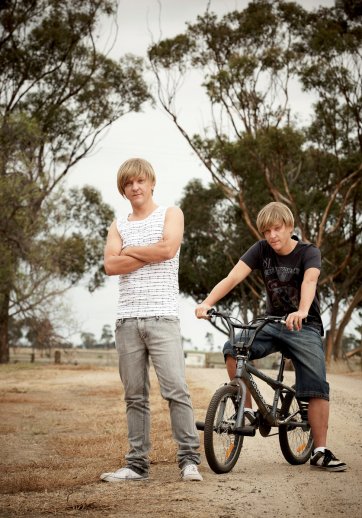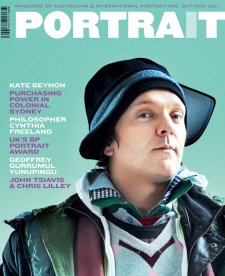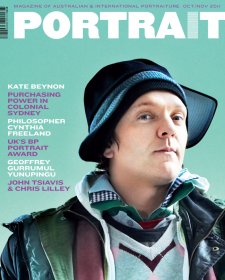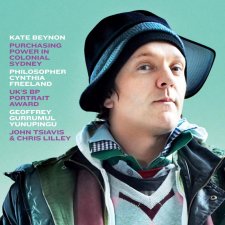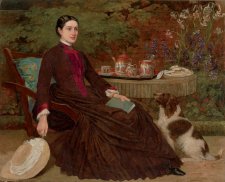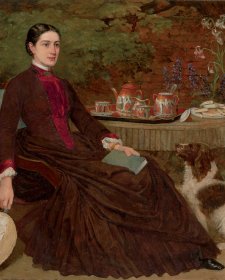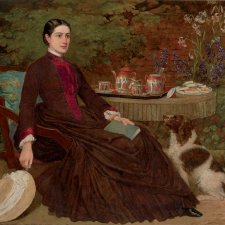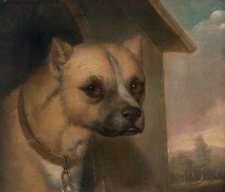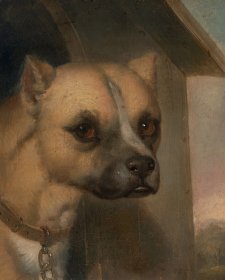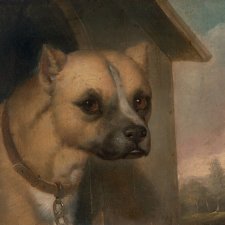Chris Lilley’s latest satirical television series Angry Boys has drawn diverse opinion. Within the context of deadpan scripted documentary-style comedy, Lilley’s work uses a familiar language in the tradition of Ricky Gervais and Stephen Merchant’s The Office of 2001.
Lilley’s projects veer from physical humour to moments of shocking emotional depth. The boldly self-focused nature of Lilley’s characters often hides a powerful desire to be loved.
Chris Lilley was born in 1974, grew up in Sydney and studied at Macquarie University. Beginning his career as a stand-up comedian, in 2003 he made his television debut in Big Bite, the first comedy from a commercial network to be nominated for an Australian Film Institute Award. In Lilley’s first solo creation the six-part ABC series We Can Be Heroes: Finding the Australian of the Year, he played numerous characters, male and female, Anglo-Australian and Asian-Australian. Lilley won awards for Best New Talent and Most Outstanding Comedy Program at the Logies of 2006 and a Swiss award, the Rose D’Or, for Best Male Comedy Performance. His second series, Summer Heights High, was an outstanding success for the ABC in 2007. Lilley won the Silver Logie for Most Popular Actor and the Logie for the Most Outstanding Comedy Program.
Angry Boys premiered in Australia in May 2011 as a co-production of ABC TV (Australia), HBO (USA) and BBC (UK) and Lilley (who created, writes, produces, directs and performs) plays several characters, male and female, of different ages and ethnicities. In Angry Boys, Lilley’s character Gran looks after teenage inmates at a juvenile detention centre. The social politics and masculine posturing between the boys is countered by Gran’s complex mix of authority and care: she gives gentle advice to a new boy about how to resist the other boys’ taunts; and distributes handmade superhero pyjamas to the young men. Lilley has reflected that his female characters are difficult to perform. As he explained to Robert Guy Davis about playing the character of Gran, ‘it was also that environment where we had all those kids around and it was so intense and so real – there are scenes where the boys had really gotten deeply into their characters’.
The male characters that Lilley plays, like the boys in the remand centre, embody complex registers of masculinity. There is an unspoken bond between twin brothers Nathan and Daniel; surfer Blake Oakfield seems genuinely confounded by the responsibilities of manhood. One of the non-Australian characters played by Lilley is an African-American rapper. ‘S.Mouse isn’t a stereotype,’ Lilley told TimeOut magazine, ‘he’s a character with a family and a story’. Peter Conrad writing in The Monthly sees in Lilley’s work a symbolic reference to Australia’s identity where Angry Boys ‘regrets the loss of innocence and of childhood, both of which were preserved by Australia’s isolation’.
The inclusion of a portrait of Chris Lilley in the collection of the National Portrait Gallery acknowledges his unique creativity. Photographer John Tsiavis has worked closely with Lilley for several years and this photographic portrait interprets aspects of Lilley’s creative work, and alludes to the complex nature of identity.

